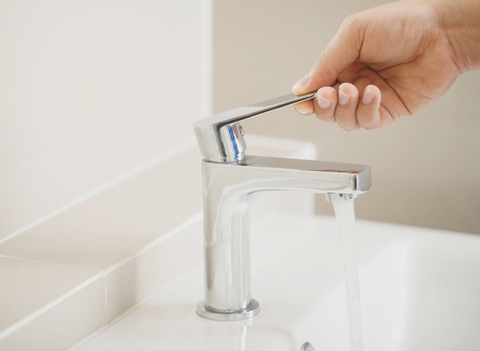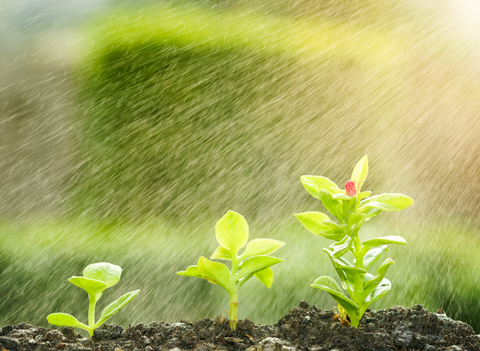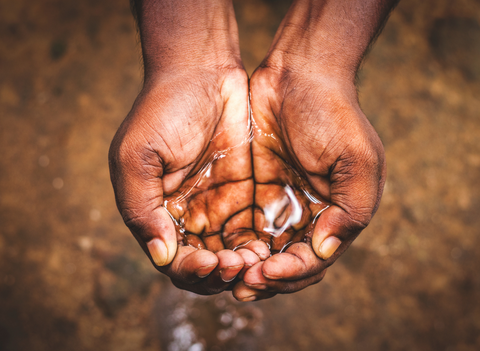In South Africa, where water scarcity is a pressing issue, saving water is not just a good practice; it's essential. Whether you're at home, in the office, or at school, every drop counts. With the right strategies and a bit of mindfulness, you can make a significant impact on your water consumption and help conserve this precious resource.
From putting up reminder posters to incentivising water-saving efforts, there are numerous ways to become more water-wise. It's about making small changes that add up to big savings. Let's dive into how you can play your part in reducing water wastage and ensuring a sustainable future for all.

Understanding Your Water Footprint
How to save water is a question that echoes across communities, particularly in Cape Town, where water scarcity has been a critical reminder of why saving water is important. Your water footprint isn't just about the amount you drink; it extends to how water is consumed and conserved in all aspects of your life. From the garden to the bathroom, each drop counts more than ever.
In South Africa, understanding the importance of saving water begins with recognizing the role each individual plays in the broader picture of water conservation. It's not just about short showers or turning off the tap while you brush your teeth, though these actions are crucial. It’s about a comprehensive approach to reducing your overall water consumption, both direct and indirect.
Consider your household activities: doing less laundry, installing a water meter, and opting for water-wise gardening techniques can substantially reduce your water usage. Moreover, implementing efficient watering systems and reusing greywater for irrigation highlight water conservation Cape Town efforts and serve as a blueprint for households across the country.
Your water footprint also involves making conscious decisions about the products you use and their water-intensive production processes. By choosing locally produced goods and reducing meat consumption, you're indirectly contributing to significant water savings. It's about making those small, informed choices that collectively make a large impact.
Additionally, adopting water-saving habits like carrying a water bottle, using a bucket instead of a hose for car washes, and sweeping driveways instead of hosing them off can further decrease your water footprint. Each action might seem minor, but together, they contribute to a larger culture of conservation.
Being water-wise isn't just a response to the immediate challenge of water scarcity; it's a lifelong commitment to sustainable living. The journey towards Understanding Your Water Footprint and how to save water presents an opportunity to reevaluate daily habits and make lasting changes that ensure the well-being of our communities and the environment for generations to come.
Simple Daily Habits to Save Water
In addressing how to save water in South Africa, particularly in Cape Town, it's crucial to integrate simple, daily habits that significantly contribute to water conservation. With the pressing issue of water scarcity, understanding the importance of saving water and why it's important cannot be overstated.
One of the easiest ways to start is by bringing a water bottle to school or work. This not only reduces the dependency on single-use plastics but ensures that any leftover water at the end of the day can be repurposed for watering plants. Instead of reaching for the hose, opt for water cans when tending to your garden, minimizing waste.
Doing less laundry can have a more significant impact than you might think. By waiting until you have a full load, you can save a substantial amount of water each week. Similarly, installing a water meter can make you more aware of your consumption, encouraging further reduction.
Garden sprinklers and hosepipes are often overused, consuming between 500 and 1000 litres of water an hour. To manage this effectively:
-
Avoid using sprinklers during windy conditions or the middle of the day when evaporation rates are high.
-
Consider fitting JO JO Tank to collect rainwater. With the capacity to store about 200 litres, it's an excellent way to use natural resources efficiently while taking care of your garden.
Regular maintenance of your plumbing is also crucial. Regularly check for leaks to prevent water wastage, a simple step that can save litres of water daily.
By incorporating these tips into your routine, you're not only contributing to a sustainable future for Cape Town but also setting a precedent for water-wise living in South Africa.
Efficient Water Use in the Home
Understanding how to save water isn't just beneficial for the environment—it’s essential for sustaining life in water-scarce regions like Cape Town. In the home, there are myriad opportunities to conserve water, each making a significant impact on the overall water footprint. By integrating simple yet effective practices, you can play a crucial role in water conservation in Cape Town.
Adopt Water-Saving Habits
Switching to water-saving habits can drastically reduce your household's water consumption. For example, fixing leaks promptly is non-negotiable. A dripping tap can waste up to 10 litres of water a day. Imagine the difference you'd make by addressing this small issue immediately.
Moreover, filling the sink for dishwashing instead of running the tap can save litres by the minute. It's a simple change in habit that, over time, amounts to substantial water savings. Similarly, limit your shower time to five minutes or less. Every minute less in the shower can save up to nine litres of water.
Invest in Water-Efficient Devices
Investing in water-efficient devices is a smart move for any household serious about water conservation in Cape Town. Low-flow showerheads, dual-flush toilets, and efficient washing machines are just the tip of the iceberg. These devices are designed to use significantly less water without compromising on performance.
Rethink Gardening Practices
Your garden is another area where water savings can be substantial. Use a watering can instead of a hose, and water your plants during the cooler parts of the day to prevent evaporation. Moreover, choosing indigenous, drought-resistant plants can reduce your garden's water demand.
Why Saving Water is Important
In areas like Cape Town, the importance of saving water cannot be overstated. With the right strategies, you can contribute to a sustainable future for your community. Remember, every drop counts, and the journey to water conservation begins in the home. Start implementing these tips today and become a part of the solution.
Water Conservation in the Garden and Outdoors

When considering how to save water, your garden and outdoor usage is a crucial area to focus on. In Cape Town, water conservation isn't just a good habit; it's essential for the preservation of our natural resources. The importance of saving water can't be overstated, especially in regions like Cape Town that face water scarcity issues.
Collecting Rainwater
One effective strategy for water conservation in Cape Town involves collecting rainwater. By installing rain barrels or cisterns, you can capture rainwater to use for irrigating your garden. This not only reduces your reliance on municipal water but also makes good use of an otherwise untapped resource.
Optimal Watering Techniques
Watering your garden wisely is pivotal. Here's why saving water is important in gardening:
-
Timing: Water early in the morning or late in the evening to reduce evaporation.
-
Method: Use a watering can or drip irrigation to apply water directly to the plant roots, where it's needed most.
Switching to these methods can significantly reduce water wastage and still keep your garden thriving.
Choosing the Right Plants
Incorporating indigenous or drought-resistant plants into your garden can dramatically decrease water consumption. These plants are well-adapted to the South African climate and require less water to maintain. Some excellent choices include Spekboom, Succulents, and Wild Rosemary.
Mulching
Applying mulch around plants reduces evaporation, keeps soil temperature steady, and reduces the need for watering. This simple step can conserve a considerable amount of water and improve plant health.
Implementing these tips for water conservation in the garden can lead to substantial savings on your water bill while ensuring your outdoor spaces remain beautiful and sustainable. Making these small changes can have a big impact on both your garden and Cape Town's overall water reserves.
Community and Policy Actions

When diving into how to save water and the significance of water conservation in Cape Town, it's crucial to consider both communal and policy-based strategies. These approaches are foundational in sculpting a society that values and actively engages in water conservation efforts.
Community Actions play a pivotal role in making water conservation a collective goal. Engaging in community-driven initiatives, such as neighbourhood water-saving challenges or educational workshops, fosters a shared responsibility towards saving water. For instance, hosting rainwater harvesting seminars can enlighten your community about capturing and reusing water, a practice that significantly reduces dependence on municipal supply. Additionally, establishing community gardens with drought-resistant plants not only beautifies the area but also serves as a live demonstration of water-wise landscaping.
On the policy front, the importance of local government and organizational policies cannot be overstated in achieving long-term water sustainability. Policies that incentivize businesses and households to adopt water-saving technologies — such as low-flow toilets and showerheads — lay the groundwork for a water-efficient community. Moreover, municipal regulations can enforce water usage limits during drought periods, ensuring that the scarcity of water is addressed with the seriousness it warrants.
Collaboration between local authorities and the community is essential. Implementing policies that encourage businesses to conduct water audits and adopt water recycling systems can dramatically reduce water wastage. Additionally, the local government can facilitate the installation of water meters, enabling residents and businesses to monitor their water usage actively, fostering a culture of accountability and conservation.
Initiatives like Cape Town's "Day Zero" campaign highlight why saving water is important not only during drought crises but as a continuous effort. By combining community actions with robust policy measures, Cape Town can set a benchmark for water conservation globally, reminding us that every drop saved contributes to ensuring water security for future generations.
Leveraging Technology for Water Conservation
In the heart of Cape Town's efforts to combat water scarcity, technology plays a pivotal role. Water conservation in Cape Town has become not just a necessity but a way of life, and with the right technological tools, you can contribute significantly to this cause.
Smart home systems are your first line of defence against water wastage. These systems can monitor water usage in real-time, alerting you to leaks or overuse that you might not notice otherwise. Implementing a smart irrigation system in your garden ensures that plants receive the precise amount of water needed, reducing waste. These systems can adjust watering schedules based on weather forecasts to avoid watering before or after rain, embodying the importance of saving water in every drop.
Another key piece of technology is water-efficient appliances. Whether it's a washing machine or dishwasher, newer models are designed with water conservation in mind. They use less water without compromising on performance, making them a smart choice for households keen on saving water. Remember, using an efficient washing machine can save up to 26,000 litres per household per year, highlighting why saving water is important.
Moreover, consider installing low-flow fixtures in showers, taps, and toilets. These fixtures significantly reduce water flow, leading to considerable savings over time. A low-flow showerhead, for example, can save you thousands of litres annually by simply reducing the volume of water used during each shower.
Lastly, rainwater harvesting is a technology that's gaining traction in Cape Town. By collecting and storing rainwater, you can reduce your reliance on municipal water supplies for activities like watering the garden or washing your car. It's a sustainable approach that not only aids in water conservation but also prepares you for drier seasons.
Incorporating these technologies into your daily life doesn't just conserve water—it ensures a sustainable future for Cape Town. Each action, no matter how small, contributes to a larger impact, reinforcing how to save water as both a personal and community goal.
Adopting water-saving technologies isn't just a smart move for your wallet—it's a crucial step in safeguarding Cape Town's future. Whether it's through smart home systems, water-efficient appliances, or rainwater harvesting, every action you take makes a difference. Remember, saving water is more than a personal choice; it's a collective effort that benefits the entire community. By embracing these innovations, you're not only contributing to a more sustainable Cape Town but also setting a precedent for responsible water usage worldwide. Let's make every drop count.
